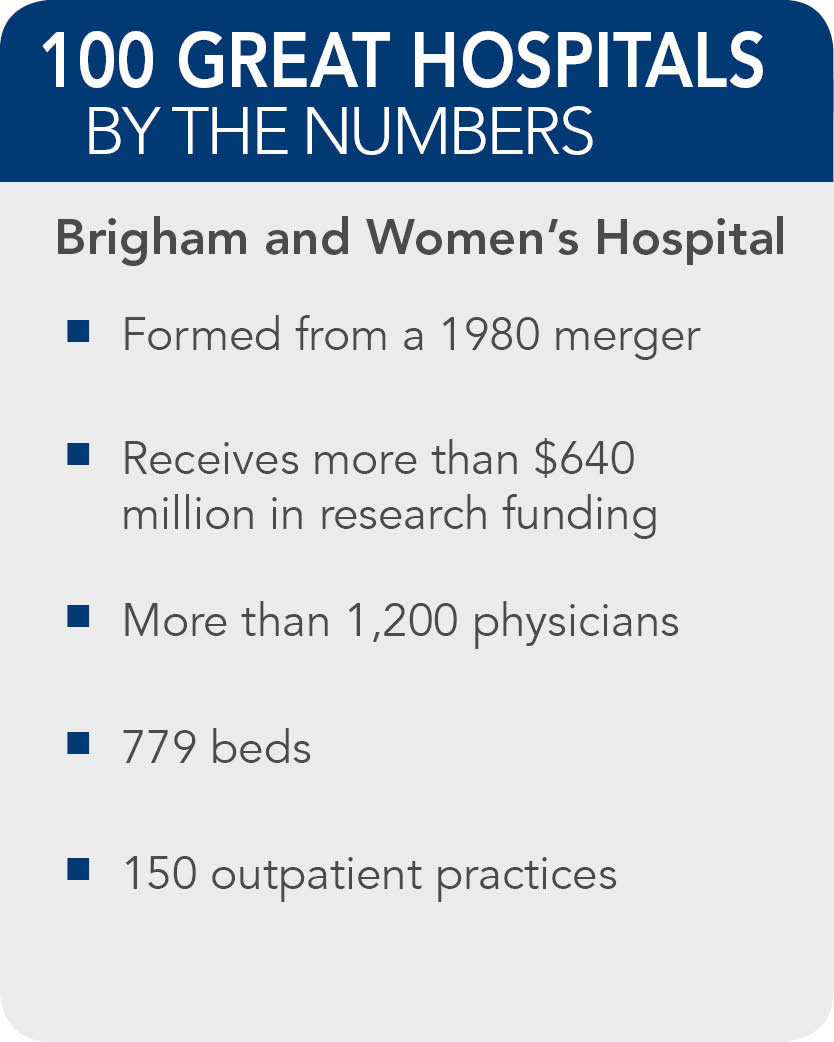Brigham and Women's Hospital (Boston). In 1980, three of Boston's oldest hospitals — the Peter Bent Brigham Hospital, the Robert Breck Brigham Hospital and the Boston Hospital for Women — merged to form Brigham and Women's Hospital, which now serves patients from across the nation and 120 countries around the globe.
 Brigham and Women's, a 779-bed hospital with more than 150 affiliated outpatient practices, is internationally renowned as a referral center for complex cases and has consistently ranked in the top 10 of U.S. News & World Report's Best Hospitals. In 2013, the facility placed as one of the top 10 hospitals in the country for several specialties including cancer, cardiology and heart surgery, diabetes and endocrinology, gynecology, nephrology and rheumatology.
Brigham and Women's, a 779-bed hospital with more than 150 affiliated outpatient practices, is internationally renowned as a referral center for complex cases and has consistently ranked in the top 10 of U.S. News & World Report's Best Hospitals. In 2013, the facility placed as one of the top 10 hospitals in the country for several specialties including cancer, cardiology and heart surgery, diabetes and endocrinology, gynecology, nephrology and rheumatology.
In addition to its role as a leader in patient care, Brigham and Women's is also a major research hub. Its Biomedical Research Institute is the second largest recipient of National Institutes of Health funding among independent hospitals in the U.S., and more than 1,000 principal investigators are supported by more than $640 million in total research funding.
Brigham and Women's has a strong history of pioneering clinical breakthroughs. In 1954 at Peter Bent Brigham Hospital, for example, physicians performed the world's first successful human organ transplant, and, in 1995, physicians at Brigham and Women's performed the nation's first triple-organ transplant.
Other research achievements include the development of a computerized drug-order entry system that reduced the incidence of serious medication-related errors by 55 percent in 1999 and resetting national standards for cholesterol lowering in coronary heart disease in 2005.

 |
 |


